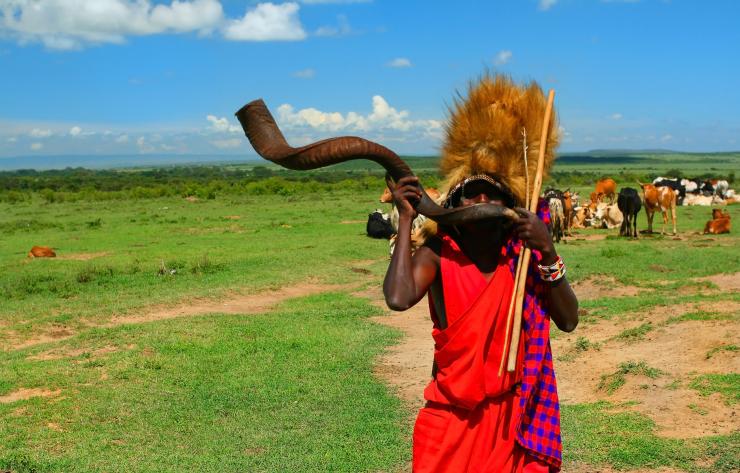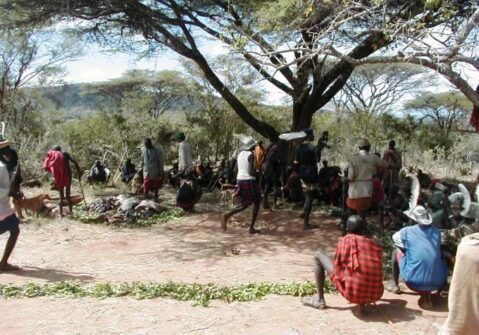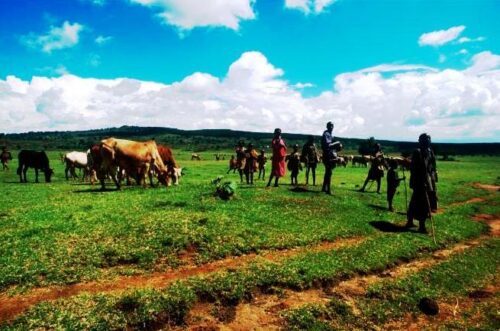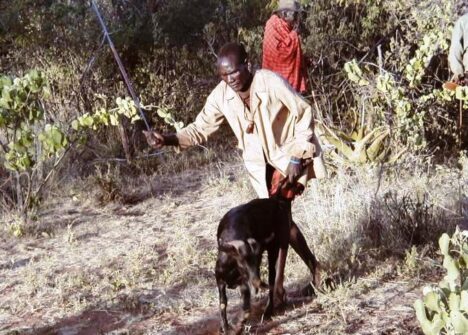The meaning of the sacrifice in the African culture.

Every religion has some form of sacrifice. In fact, sacrifice is the most universal of all rituals.
Most rituals imply an offering and quite often a blood sacrifice. A blood sacrifice is a displacement of mystical forces made possible by God himself, thanks to the intercession of a spirit, divinity or ancestor and the mediation of a priest for the satisfaction of the sacrificing community. The blood of the victim, when poured on the altar, releases the vital force contained in it and feeds the spiritual beings directly alerted by the words of the priest. We have here an offering of food given to the sacred forces, which gives life to the sacrificing community through a common meal. We also have the words of the priest to the divinity or ancestor who intercedes to God. The response of God comes in an inverted way: it goes to the sacrificing community through the ancestor and the priest. Note here that God does not feed on the blood of the victim; God is the very source of the vital force; for him the vital force does not diminish.

Kenya. Pokot. Among cattle-keeping communities, a sacrifice of a bull is offered in order to curb violence within the society. File swm
On the contrary, the vital force of other spiritual entities like the spirits of nature, the ancestors and the divinities get spent especially, when they do favours to the living. This is the reason why they ask for sacrifices. If the sacrifices are not offered, they punish the living. ‘Do not complain that the divinity (lubaale) is killing you if you ignore the sacrifices you are advised to offer’, thus goes a Luganda saying.
In Africa, sacrifices to God are usually eggs, portions of raw staple food, or live cocks left in the bush or forest. Some tribes make annual sacrifices to God but the animals immolated are for divinities and the ancestors, not for God.

Ethiopia. Sidamo. Some tribes make annual sacrifices to God but the animals immolated are for divinities and the ancestors, not for God. File swm.
The commonest sacrifice in Africa is a cock. It is offered in order to ward off minor troubles or sicknesses but it plays a deeper role than that: when day comes, insects, birds and animals sing or make noises to welcome the day but man is still asleep. The cock, which traditionally used to spend the night in the same house as its owner, crows and pushes the family into the rhythm of the awaking nature. When it is immolated and as it dies, its vital force pushes the same family or even the individual into the rhythm of the spirits. Sometimes the colour of the cock matters according to the likes of the spiritual entity concerned. This law works even for goats and cows. Goats are sacrificed when a large family or clan is at risk, but when the whole tribe is attacked by sickness or any form of common enemy, it is a bull. Sheep are also sacrificed in order to keep epidemics at bay.
A sheep is believed to be immune to suffering because it does not make noise when it is being slaughtered and its resistance is minimal. The vital force in its blood is believed to strengthen the sacrificing community, rendering it immune to epidemics. The same animal is sacrificed for reconciling two brothers who have become bitter enemies. Its heart is cut in two and shared among the warring brothers.

Kenya. Pokot. Goats are sacrificed when a large family or clan is at risk. File swm.
This sacrifice brings out clearly the nobility of a sheep. Sometimes, before the sacrifice, the reason for the sacrifice is explained to the sacrificial victim accompanied with excuses. It is clear here that the animal, in this case, is not taken as something to use; it is a respected individual. Among cattle keeping communities, a sacrifice of a bull is offered in order to curb violence within the society.
It is the whole community, which performs what we can call the rite of diverted violence. When the animal is killed, sometimes very cruelly, the violence, which would be directed to people is done on the animal, which is their substitute. It is at the same time an elevated violence since it is transported from the profane to the sacred. It is also a transcended violence since it enables the community to transfer the grudges, rivalries, hatred, tension and the tendencies of aggression within it to an animal victim. This is the way the community ‘deceive’ its own violence by directing it to victims which do not call for vengeance. All in all, sacrifice in whatever form is for respect of life, that is, in sacrifice, life is not lost; it just becomes sublime. (Open Photo: Maasai warrior playing a traditional horn. ©photopiano/123rf)
Edward Kanyike



